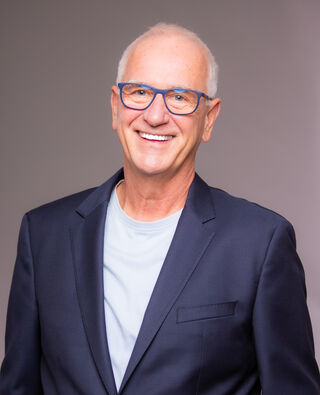Career
Becoming People and Leaders of Integrity
An interview with Mike Horne on how to live and work authentically.
Posted April 13, 2021 Reviewed by Devon Frye
How we treat others matters, affecting not only the people we interact with but our own lives too. How can we, as people and as leaders, cultivate integrity to become more authentic in our daily lives and in the workplace? In this interview, Mike Horne shares lessons from his book on how to develop integrity.

Mike Horne, Ph.D., is the author of Integrity by Design: Working and Living Authentically. He helps leaders and their teams bring their best in every situation. An accomplished global executive and expert in Authentic Leadership, Mike opens doors and possibilities for personal and professional change and growth. Mike’s work helps leaders to build trust, open communication, and make strides in their accomplishments. Mike is the host of the Authentic Change podcast.
Jamie Aten: Why did you set out to write your book?
Mike Horne: Personal and organizational engagement develops and grows when leaders and team members are able to bring who they are to what they do. What we say and do matters, and authentic individuals and leaders match their talk and their actions. In executive rooms and shop floors around the world, congruence contributes to happiness, and that is a result of integrity—for executives and employees alike.
Integrity requires a strong moral and ethical foundation, and high-performing organizations operate from clear and agreed-upon values. My book provides a blueprint for success in both intimate and professional relationships.
I want to provide a framework for others to find happiness at work and at home that stems from organizational and personal integrity.
JA: What is the primary takeaway you hope readers will learn from reading your book?
MH: Several takeaways will be important to readers and have immediate practical value. Among those are the concepts of agency and agentic behavior. Agency contributes to establishing trust, open communication, empathy, and achievement—authentic leaders and individuals express their needs clearly, and I hope to provide a framework.
Secondly, integrity isn’t a one-and-done state: organizational life challenges and shapes our behaviors and experiences. The book provides insights on developing a relationship with personal integrity over life’s many seasons.
I also hope that the book inspires rising leaders to answer some of the greatest obstacles to creating meaning, truth, and transparency in organizations. The book provides a reference to the attitudes, behaviors, and beliefs that establish an integrity mindset.
JA: What are some lessons from your book that can help people live more resiliently?
MH: Authentic leaders are incredibly resilient people—at least that’s what I’ve observed in the extraordinary exercise of leadership in the world’s corporate innovators. Leaders establish trust; the easiest way to build trust and establish inclusion is to say “hello” to others. Too often, in the hustle and bustle created by deadlines and production demands, we fail to recognize or to remember the inherent worth and dignity of every individual. Authentic leaders blend the personal and professional, and they regard others as something other than “human resources” or elements of production. People and culture work is at the heart of all meaningful human enterprise. Authentic leaders explore possibilities and help others to be accountable and to change bad systems. Resilient leaders trump bad systems.
JA: What are some insights from your book that help readers support a friend or loved one?
MH: “Kind people are our kind of people.” These are the words I’ve seen on our local elementary school’s marquee over the last few weeks, as kids and teachers have returned to physical classrooms. Leaders of integrity also have the capacity to forgive, and as with gratitude, incorporate into the behaviors that help them to connect and to establish empathy with others. Say hello. Ask a question. Be kind. Over time, these are the practices that help others to recognize leaders of integrity.
JA: What are you currently working on these days?
MH: I’m helping experienced and aspiring executives with their worry lists. I believe that fundamental change is achieved when we identify our worries or concerns. It’s a means to begin a process of allowing us to more fully recognize the possibilities and potentials in ourselves and in others. To that end, I’m working on new offerings that provide frameworks for authentic and lasting progress in organizations. I’m excited about the prospects for increased Authentic Leadership, as some return to physical work locations or others experience a new world of permanent remote work.
I’m looking forward to helping others to make gains in the expression of integrity and Authentic Leadership.
JA: Anything else you would like to share?
MH: When authenticity is opened in organizations, people are able to bring more of who they are to what they do, and that contributes to personal and organizational success. Authenticity reflects what we want from each other and our organizations—open communication, trust, fun, and stewardship.
If you want to lead with integrity:
- Be honest—what you say and think matters.
- Keep your word.
- Match your actions with your words and be courageous.
- Don’t cheat or skimp—strive to bring more of who you are to every situation.




